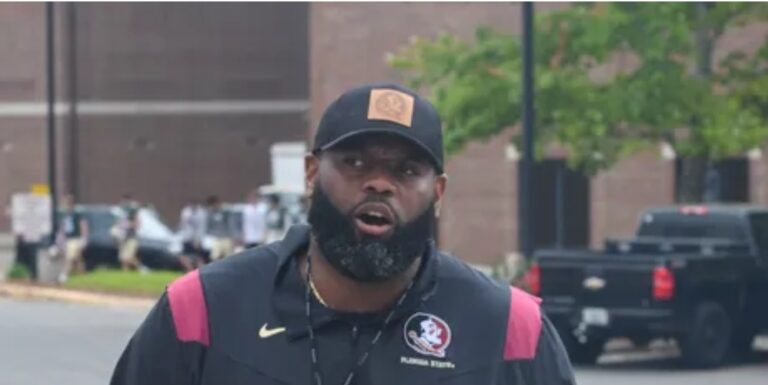Florida State University (FSU) has long been known for its proud football tradition, but in recent years, the Seminoles have struggled to maintain the offensive prowess that once made them a powerhouse. The 2023 season has been particularly disappointing for FSU’s offense, and many have begun questioning the leadership of offensive coordinator Alex Atkins, raising the possibility that he could be fired if the team’s performance does not improve.
### The Struggles of FSU’s Offense
Under head coach Mike Norvell, FSU’s offense has been expected to be a high-powered unit, blending a spread system with power running and dynamic passing. However, in recent years, the team has struggled to consistently put points on the board. The 2023 season, in particular, has seen the offense sputter, ranking near the bottom in various offensive categories such as total yards, scoring offense, and third-down efficiency. While the defense has shown signs of improvement, the offense has failed to complement it in a way that makes the Seminoles competitive in the ACC or nationally.
A primary area of concern is FSU’s inability to establish a consistent rushing attack, a critical aspect of Norvell’s offensive philosophy. Despite having talented running backs and an experienced offensive line, the team has often found itself one-dimensional, relying too heavily on the passing game. Quarterback play has also been inconsistent, with turnovers and poor decision-making exacerbating the offensive woes.
### Alex Atkins’ Role
Alex Atkins, in his role as offensive coordinator, has faced increasing scrutiny as the leader of the offense. Hired by Norvell in 2020, Atkins was expected to elevate the Seminoles’ offense and implement a modern, up-tempo scheme. However, the team’s failure to execute consistently has led to growing concerns about Atkins’ effectiveness in the role.
Atkins is highly regarded for his work as an offensive line coach, and in that capacity, he has helped develop some talented players. However, the offensive line’s struggles in both pass protection and creating running lanes for the backs have been glaring. There’s a question of whether Atkins’ ability as a play-caller and strategist is aligned with the needs of the team. His reliance on an up-tempo system has not yielded the expected results, and in big games against more formidable defenses, the Seminoles’ offense has faltered.
### The Case for Firing Atkins
If FSU’s offensive struggles continue throughout the rest of the season, the question of whether Alex Atkins could be fired becomes a very real concern. The program is under pressure to return to national relevance, and with the ACC becoming more competitive and the team’s resources in recruiting and facilities improving, mediocrity is no longer an acceptable standard.
Critics argue that Norvell’s vision for the offense, which includes a balanced attack and dynamic play-calling, isn’t being fully realized under Atkins’ direction. With a potent quarterback in Jordan Travis, and a solid group of skill players, the lack of production is difficult to excuse. Many expect that if the offense doesn’t show tangible improvement, Norvell may be forced to make a change, particularly if it negatively impacts FSU’s ability to win games in the competitive ACC.
### The Case Against Firing Atkins
However, there are counterarguments to firing Atkins. While the offense has underperformed, some of the challenges can be attributed to a variety of factors, including injuries, inconsistent quarterback play, and a difficult schedule. Atkins may also be dealing with a lack of elite talent at certain positions, which makes it difficult to implement a successful offensive system. Additionally, Norvell has demonstrated confidence in Atkins, and a mid-season change could potentially disrupt team chemistry.
In college football, coaching turnover can also create instability, and some believe that FSU should give Atkins more time to grow into the role. Coaching changes mid-season or after just a few years often don’t yield the desired results and can contribute to a longer rebuilding process.
### Conclusion
While Alex Atkins’ future as FSU’s offensive coordinator is uncertain, his job security will depend heavily on the team’s performance for the remainder of the season. If the offense continues to struggle and fails to make noticeable improvements, there could be calls for change. However, Norvell and Atkins still have time to turn things around, and a successful second half of the season could quiet those calls. For now, the pressure remains on both to ensure that FSU’s offense can reach its potential and contribute to the program’s long-term success.


